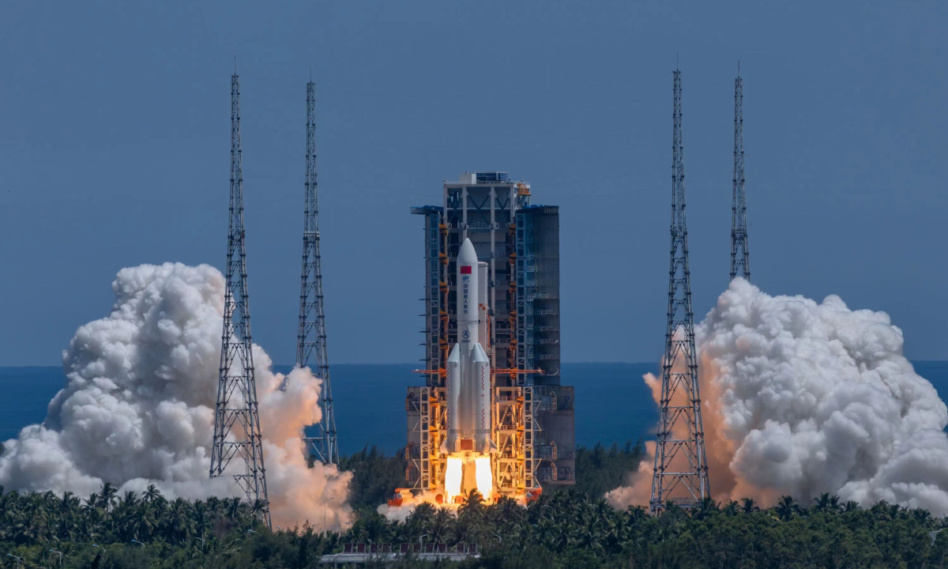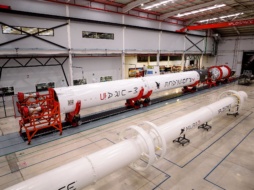China’s space station is almost finished.
Over the weekend, the China Manned Space Agency launched the Wentian laboratory module to its in-progress Tiangong station atop a Long March 5B. Wentian successfully docked with the station earlier this morning after a 13-hour journey.
Wentian: The lab module is the largest spacecraft that China has ever sent to orbit. In fact, it’s the heaviest single spacecraft module ever sent to orbit, weighing 23 metric tons, per the state-owned Global Times. Wentian is designed to host biology and other science experiments, as well as provide backup life support systems and propulsion to the Tianhe core module.
Tiangong: China is building its own space station at breakneck speed. The country’s space program been iced out of the ISS since 2011, when Congress banned US-China off-Earth cooperation on national security grounds. Since then, China has set its own space station plans into motion, hitting key milestones over the last year.
- The first module, Tianhe, went up to orbit last April.
- The last module, Mengtian, is slated for launch in October.
The Shenzhou-14 mission launched three taikonauts, Chen Dong, Liu Yang, and Cai Xuzhe, to the station last month. They were onboard the Tianhe core module to welcome the new laboratory.
Look up: China’s Long March 5B rockets are now notorious for making uncontrolled reentries into the atmosphere. The rocket stage from the Tianhe launch reentered over the Indian Ocean 10 days after launch. The spent stage from Wentian’s launch is currently being tracked in orbit, but it’s difficult to estimate when or where it will reenter.




